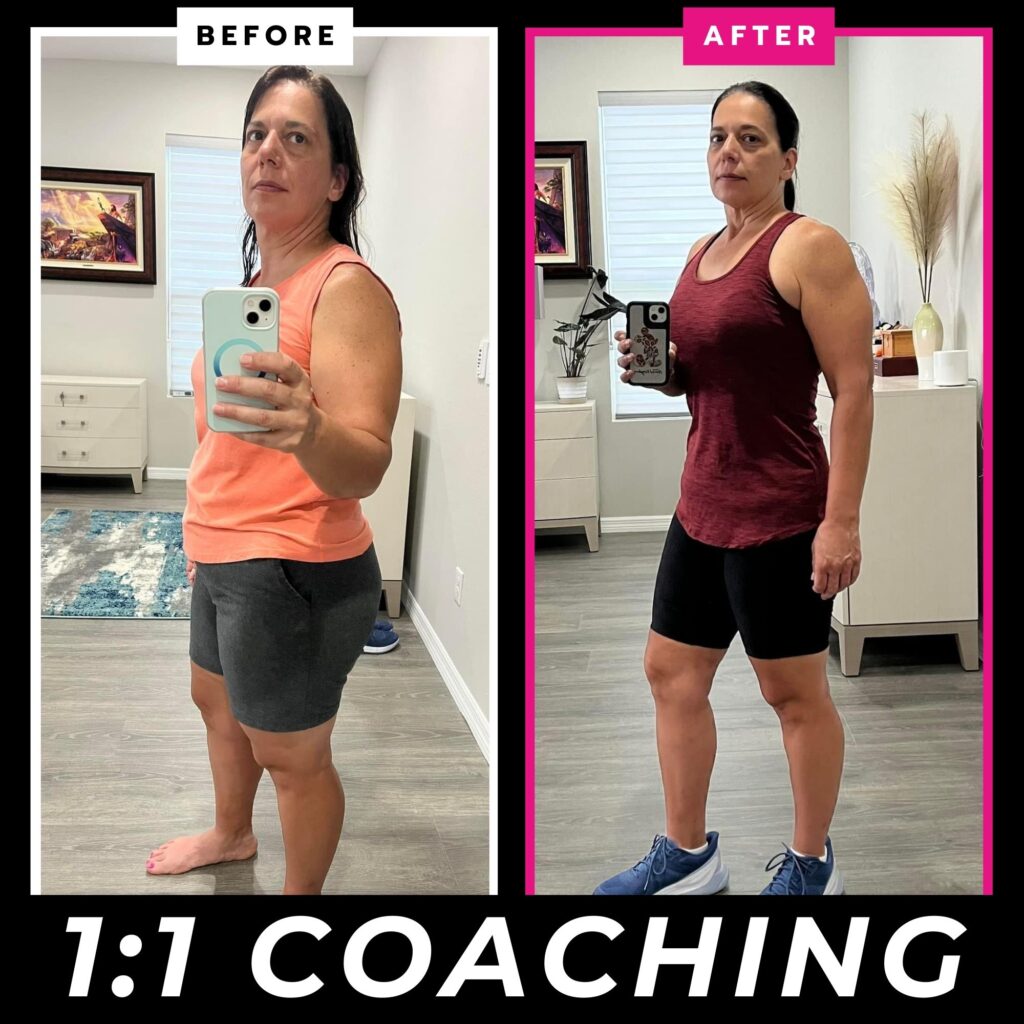In this episode I discuss WHY our metabolism actually slows down and how we can keep our metabolic rate higher through a proper diet and exercise routine. I also discuss the importance of PROTEIN as we get older.
SUMMARY:
- Does our metabolism slow down? The simple answer is yes.
- Why does it slow down? While there is some change because of simply our age, most often we see a bigger decrease in our metabolic rate because we aren’t as active, we struggle to utilize protein as efficiently and we lose muscle mass.
- Focus on staying active. 1 in 4 older adults is inactive. And remember being active isn’t just working out, it’s simply even getting moving more throughout the day.
- Change your dieting habits. We have to stop the crash diets as they will only backfire even more as we get older. We need to focus on protein, especially because we aren’t as efficient at muscle protein synthesis as we get older. So increasing our protein, especially post workout, may be key!
4 KEY TAKEAWAYS:
-
- Get moving! Be more active outside of your workouts.
- Focus on lifting over just cardio. Building muscle mass can help you keep your metabolism healthy.
- Dial in your protein and even increase your protein as you get older.
- Don’t wait to make changes! Start those healthy activities and dieting practices now!
RS PROGRAMS:
- 1 on 1 Online Coaching – Looking for daily accountability and coaching as well as a diet and workout routine tailored to your exact needs and goals even as they change over time? Apply to my one on one coaching program!
- The Macro Hacks Program – Learn to eat according to your goals as your needs change over time! (There’s a great section on dieting according to your age and changes in your hormones!)
STUDIES:
- Physical Inactivity Among Adults Aged 50 Years and Older — United States, 2014 – “Despite the many benefits of being physically active, approximately one in four adults aged ≥50 years are inactive.” – https://www.cdc.gov/mmwr/volumes/65/wr/mm6536a3.htm
- Regular exercise and the age-related decline in resting metabolic rate in women. 1997 – “Our results are consistent with the concept that the age-related decline in RMR in sedentary women is not observed in women who regularly perform endurance exercise. The elevated level of RMR observed in middle-aged and older exercising women may play a role in their lower levels of body weight and fatness compared to those in sedentary women.” – https://www.ncbi.nlm.nih.gov/pubmed/9329340
- Protein Intake and Muscle Health in Old Age: From Biological Plausibility to Clinical Evidence. 2016 – “Older individuals therefore need to ingest a greater quantity of protein to maintain muscle function. The quality of protein ingested is also essential to promoting muscle health. Given the role of leucine as the master dietary regulator of muscle protein turnover, the ingestion of protein sources enriched with this essential amino acid, or its metabolite β-hydroxy β-methylbutyrate, is thought to offer the greatest benefit in terms of preservation of muscle mass and function in old age.” – https://www.ncbi.nlm.nih.gov/pubmed/27187465
- What is the Optimal Amount of Protein to Support Post-Exercise Skeletal Muscle Reconditioning in the Older Adult? 2016 – “In contrast to younger adults, older adults are less sensitive to smaller doses of ingested protein (less than ~20 g) after exercise, as evidenced by an attenuated increase in muscle protein synthesis rates during post-exercise recovery. However, older muscle appears to retain the capacity to display a robust stimulation of muscle protein synthesis in response to the ingestion of greater doses of protein (~40 g), and such an amount may be required for older adults to achieve a robust stimulation of muscle protein synthesis during post-exercise recovery. ” – https://www.ncbi.nlm.nih.gov/pubmed/26894275




Great info Cori. This applies to myself as well as many of my clients.
Thanks for keeping the information easy to understand.
Thank you Karen! Glad it helps!!
Thank you for the information provided, it was very useful and well presented.
Excellent info! I’ve been a fan of Redefining Strength for a while now but didn’t realize you did podcasts too but glad I had a listen tonight. 🙂
Just brought them back! Hope you like them! Thank you!!
Glad it helped!
Thanks for the excellent detail and specific tips.
Great podcast and very informative. And simple to understand. Thank you
Thank you!
Just in time for my revamped workout plan. Found that, at 60+ I was struggling in the eating/cardio/weightlifting areas which previously up until recently had always worked for me but don’t anymore 🙁
This morning I was looking for inspiration in your daily mail that would help me bring in those results again and voila, here we are! Thank you Cori – you’re a legend!
So glad the tips help Jeanne! I think it is key to remember our needs, goals and lifestyle are constantly evolving and shifting what we’re doing isn’t a bad thing. Plus, nothing works forever! And there can be fun found in making adjustments and constantly learning!
Cori I have terrible pain in my toes. I work out and try to exercise myi feet and toes . I am 65. Is there a way to lesson the pain? Thank you for encouraging us to be active.
Are you going to physio?
As always very informative and having the resources attached is a super plus factor.
So glad the tips and other posts help!